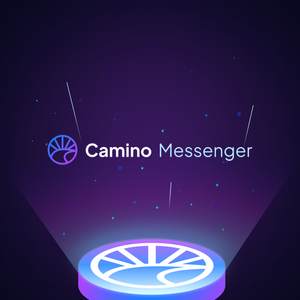Use Case in detail
Create loyal customers and explore new revenue streams with web3
Back to overviewCustomers are evolving and adapting to a new world, so travel agencies must adapt accordingly. Web3 technology can address several key challenges in the travel industry, including limited access to up-to-date travel content, low trust in distribution platforms, incomplete information for travelers, building and maintaining loyal customers, and a lack of opportunities for travel agencies to monetize their expertise. Travel agencies have extensive knowledge of travel planning, destinations, and travel trends.


“We will develop interesting and new possibilities for the business travel segment. The focus here is on-demand bundling. Furthermore, we will implement solutions that enable the trading of products within the business travel community.”

Increase travel connectivity and reduce APIs with the Camino Messenger
The Camino Messenger application solves today’s lengthy and expensive connection process and enables unified, secure, and inexpensive communication for travel companies with standardized messaging types and direct connectivity. Connect to the global travel market in just 20 minutes.
Contact us for a demoExplore the various use cases of blockchain technology for travel agencies and OTAs. Each use case offers a brief explanation and highlights the potential benefits.
Negotiating, coordinating, and consequently tracking and monitoring incentives is costly and sometimes doesn't equal the outcome.
Blockchain technology offers ways to rethink rewards in B2B and B2C. Token rewards such as NFTs are a great tool to incentivize the behaviors of travelers, communities, or partners, even on top of loyalty schemes. For travel agencies, this could mean easier incentivization of customers, while smart contracts completely automize the coordination.
Implementing voucher solutions can be complex, especially when multiple parties are involved.
The Camino ecosystem provides a simple setup for companies to add and redeem vouchers, with added flexibility and higher loyalty potential. For example, airlines and rail companies can easily offer free coffee from an external provider for delayed travelers.
Everyone strives for loyal customers, but maintaining loyalty is time-consuming and costly. Other industries lead by example on how loyalty programs can be reinvented with web3 technologies, e.g., Starbucks.
With Camino Network, the travel industry has the tech infrastructure at hand to create loyalty platforms, more efficient and less costly in bringing on new collection and redemption partners, with streamlined processes and instant views of balances for the customers and partners. Also, for smaller travel agencies or larger OTAs, this could bring new opportunities to easily join a loyalty program, where customers can collect & redeem in a safe and automized environment.
The payment process on Camino Network will change this as all travel services along the value chain take place in a global peer-to-peer network, which is extremely fast, and results in significantly lower transaction costs. This could mean that even micro services and products could be offered online at a fraction of today's transaction cost. The settlement between suppliers, partners, and B2B customers could be done more efficiently and automated. Records on the Camino Network will provide auditable data. Another advantage is the security aspect, which is given by definition by a blockchain and reduces fraud significantly.
The payment and settlement process is typically complex, time-consuming, and costly.
User-generated content provides more authentic and trustworthy marketing for businesses and can increase engagement immensely. The problem is that guests often do not have a high incentive to share their experiences.
Leverage web3 technologies to increase customer engagement with user-generated content. Users can generate content for various services or products on the blockchain and get rewarded instantly.